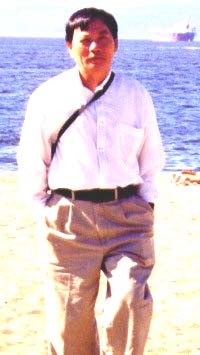 |
Literature
and Exile The writers' replies to this inevitable question are often very varied: I live away from my country because I find the cultural milieu in The realist writer must resort to examples. If we take just the case of Peruvian literature, we can come up with a list of important books which describe the face and the soul of Peru faithfully and beautifully, written by men who had spent a number of years in exile, thirty in the case of El Inca Garcilaso's Comentarios reales (Royal Commentaries) and at least twelve in the case of Vallejo's Poemas humanos (Human Poems). In both these examples - perhaps the most admirable in the whole of Peruvian literature - distance in time and space did not diminish or disturb the vision of a concrete reality which is transposed in essence into that chronicle and into those poems. In Latin American literature, the examples are even more numerous. Even if the literary value of This is simply a list of examples and the statistics in this case are there to give an indication rather than to present a rounded argument. Is it an indication that exile does not impair a writer's creativity and that physical absence from his home does not imply a loss, or a deterioration of the view of reality that his books seek to transmit? Any generalization on this theme risks drowning in absurdity. Because it would doubtless not be difficult to give numerous opposing examples to show how, in a great number of cases, when writers left their country, they lost their creativity or wrote books that deformed the world that they were attempting to describe. To these counter-statistics - we are already in the realm of the absurd - one would have to reply with another type of example which would show the countless number of writers who, without ever having touched foreign soil, wrote mediocre or inexact books about their country. And what about the writers of proven talent who, without going into exile, wrote works that do not reflect the reality of their country? Jose Maria Eguren did not need to leave The only thing we've proved is that nothing can be proved in this area and that, therefore, in literary terms exile is not a problem in itself. It is an individual problem which takes on different characteristics with each writer and has different results. Physical contact with one's own rational reality means nothing from the point of view of the work; it determines neither a writer's themes, nor his imagination nor the vitality of his language. Exactly the same is true of exile. Physical absence from a country is sometimes translated into works that accurately reflect that reality and at other times into works that distort reality. Whether or not a work is an evasion or a reflection of reality, just as whether or not it is good, has nothing to do with the geographical location of its author. That still leaves the moral criticism that some level at the writer who goes into exile. Surely the writers who desert their country show an indifference towards their own kind, a lack of solidarity with the dramas and people of that country? The question contains a confused and contemptuous idea of literature. A writer has no better way of serving his country than by writing with as much discipline and honesty as he can. A writer shows his discipline and honesty by placing his vocation above everything else and by organizing his life around his creative work. Literature is his first loyalty, his first responsibility, his primordial obligation. If he writes better in his country, he must stay there; if he writes better in exile, he must leave. It is possible that his absence might deprive his society of someone who might have been an effective journalist, teacher or cultural promoter, but it is equally possible that the journalist, teacher or cultural promoter is depriving society of a writer. It is not a question of knowing which is more important, more useful; a vocation (especially a writer's) cannot be decided in any authentic way by commercial, historical, social or moral criteria. It is possible that a young man who abandons literature to dedicate himself to teaching or fighting the revolution is ethically and socially more worthy of recognition than the other, the egotist, who only thinks about writing. But from the point of view of literature, a generous person is by no means exemplary or, in any event, he sets a bad example because his nobility and heroism are also a betrayal. Those who demand that a writer behave in a certain way (something that they do not demand, for example, of a doctor or an architect) are in effect expressing an essential doubt about the usefulness of his vocation. They judge the writer by his customs, his opinions or the place where he lives and not by the only thing by which he can be judged: his books. They tend to value these books according to the life the author leads and it should be the other way round. Deep down, they do not believe that literature can be useful and they hide, their skepticism by keeping a suspicious (aesthetic, moral or political) watch on the writer's life. The only way to clear up these doubts would be by demonstrating that literature is worth something. The problem remains unresolved, however, since the usefulness of literature, although self-evident, is also unverifiable in practical terms. MARIO VARGAS LLOSA |